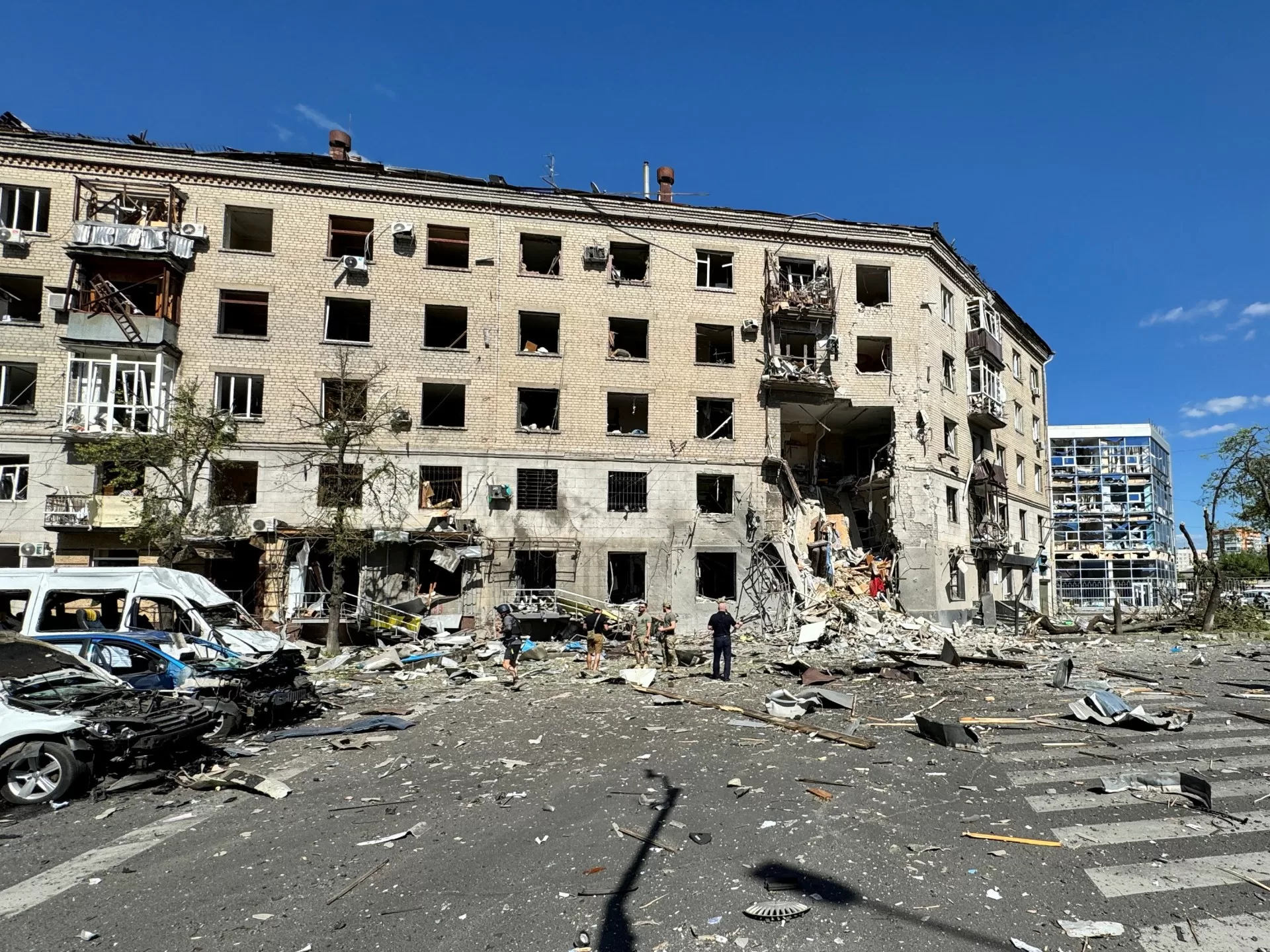Russia has relied increasingly on guided bombs dropped from a distance that involve fewer risks for its forces.
Pictures posted online showed parts of the building in ruins with windows smashed, balconies shattered and rubble strewn about a crater on the ground on Saturday.
Interior Minister Ihor Klymenko put the casualty toll at three dead and 29 injured in the mid-afternoon attack. Regional governor Oleh Syniehubov said two children were among the wounded and four of those hurt were in serious condition.
“This Russian terror through guided bombs must be stopped and can be stopped,” Zelenskyy wrote on Telegram. “We need strong decisions from our partners to enable us to stop the Russian terrorists and Russian military aviation right where they are.”
Russia has relied increasingly on the use of the bombs, relatively inexpensive, dropped from a distance and involving fewer risks for its forces.
Syniehubov said rescue work is proceeding. Other civilian targets were also hit and public transport halted. Mayor Ihor Terekhov said there had been four strikes.
Kharkiv lies about 30km (19 miles) from the border with Russia. The city of about 1.3 million people has frequently been targeted in Russian attacks during nearly 28 months of war.
Energy facilities targeted
Overnight, Russia also launched a series of strikes on Ukraine’s energy infrastructure, wounding two workers, the second such attack this week, Kyiv’s Ministry of Energy said in a statement.
Ukraine is struggling with a new wave of rolling blackouts after relentless Russian attacks on energy infrastructure that started three months ago took out half the country’s power generation capacity. In its eighth major attack on energy facilities overnight, Russia fired 16 missiles and 13 Shahed drones, the Ukrainian air force said.
With no major changes reported along the 1,000km (620-mile) front line – where a recent push by the Kremlin’s forces in eastern and northeastern Ukraine has made only incremental gains – both sides have taken aim at infrastructure targets, seeking to curb each other’s ability to fight in a war now in its third year.
On Friday, Russian-installed officials said Ukrainian drone attacks hit two electricity substations in Enerhodar, the town serving the Russian-occupied Zaporizhzhia Nuclear Power Plant.
Russian Foreign Ministry spokeswoman Maria Zakharova said the attacks exposed Zelenskyy’s disregard for nuclear safety and that Moscow would take measures to stop the assaults.
“In view of the Zelenskyy regime’s total inability to negotiate anything, our country will take all necessary measures to deny the Kyiv regime all means of carrying out such strikes,” Zakharova said on the ministry’s website.
Russian troops seized the plant in the early days of the February 2022 invasion and Moscow and Kyiv have since routinely accused each other of endangering safety around it. It produces no electricity at the moment.
